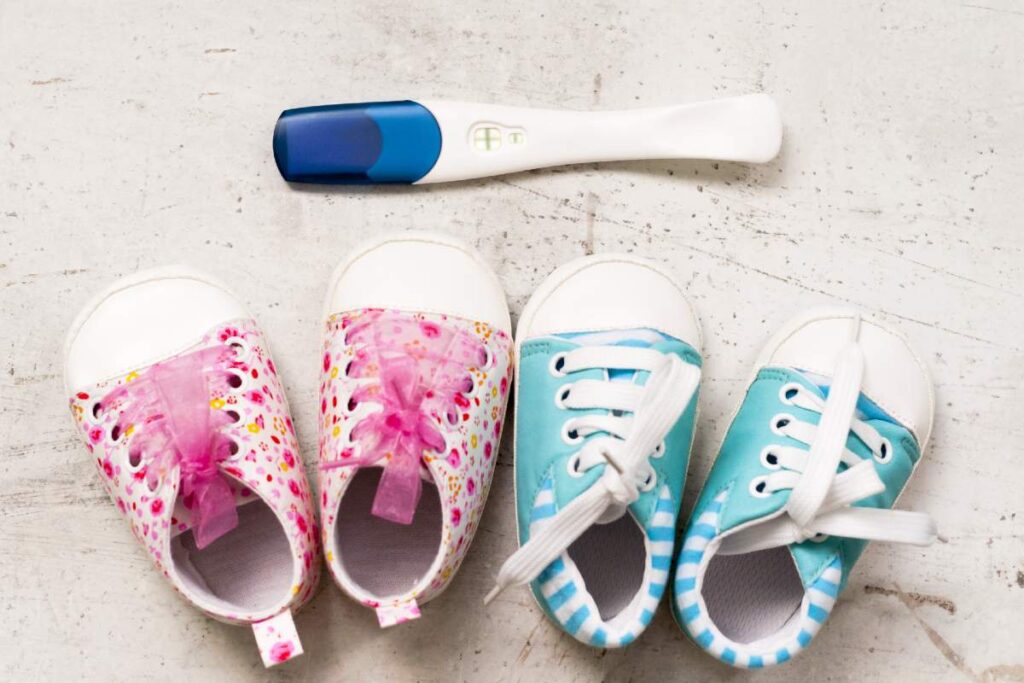When faced with infertility diagnosis, people experience a real emotional rollercoaster. If becoming a parent is one of your biggest dreams ever, how to cope with the feelings of failure and disappointment? Should you just give up on your deepest desire? Or seek alternatives? And what those alternatives really mean?
It is true that fertility treatments are often the first option to come to mind when you find yourself having trouble conceiving. The other one is adoption – this, in turn, is often suggested by all well-meaning friends and relatives who perceive it as selfless and easiest way out of infertility. What’s interesting, it is generally understood as adopting kids who are looking for homes and rarely thought of in terms of donation treatments. And there are three main types of the latter: donor eggs (“oocytes adoption”), double donation (“eggs and sperm adoption”) and embryo donation (“adopting embryos” from other infertile couples who underwent their infertility treatment successfully).
All of the mentioned options have both their advantages and disadvantages but one thing is for sure: they are all just different means of creating a family. Taking this into account, there is such a point in a fertility patients’ journey when they are faced with the ever-haunting dilemma: IVF vs adoption. Let us explain what both those processes are really about.
IVF vs adoption—Differences
In vitro treatment (IVF) is often considered an answer to most fertility issues. Naturally, this term covers a wide range of medical procedures. In its basic form, IVF – as well as its variant ICSI (intracytoplasmic sperm injection) – means joining eggs and sperm in a laboratory dish and transferring the resulting embryos into the female patient’s womb. However, in case of gametes of very poor quality, it is necessary to consider donations. And this is where most struggles begin.
For every future parent, the genetic connection with their child seems indispensable. But in reality, it is only entirely possible when we talk about a natural conception or “traditional” IVF. Other – equally important – roads to parenthood include:
Donor egg IVF
IVF with donor eggs (or simply egg donation) is a solution for women who cannot produce eggs of good quality (or any eggs) because of premature menopause, illness or surgery. It is also recommended for those females who carry inherited conditions they fear passing onto their baby. Donated eggs are carefully screened, fertilised, and then transferred into the woman’s womb. In egg donation treatment, there is the choice of either an open-identity or an anonymous egg donor. It usually depends on the country and its legal regulations. Using egg donor IVF means that the intended mother will not be genetically related to her child. However, the intended father will be – unless a sperm donor is being used. In case of the latter, we are talking about ‘double donation’.
Dr Natalia Szlarb, gynaecologist & fertility specialist at UR Vistahermosa explains:
Egg quality is the biggest deciding factor in IVF treatments: poor eggs often result in genetically abnormal embryos. By using eggs of younger donors, this issue is entirely mitigated. Research shows that pregnancy rates for women who undergo egg donation programs are not negatively affected by age – which provides older women, or those afflicted with ovarian issues, with a chance at motherhood.
IVF with donor sperm and donor eggs
Double donation means using both donated eggs and donated sperm for your treatment. It is common in case of single women or couples whose eggs or sperm cannot be used for conceiving purposes on medical grounds. In double donation, the child has no genetic link to either of its parents.
IVF with donor embryos
It is also called embryo donation or embryo adoption. It is performed with embryos donated by another couple after completing their assisted reproduction treatment. In this way, after successful IVF attempts they give all their embryos a chance for life and provide other people struggling with infertility with an opportunity to have children. What differentiates ‘embryo adoption’ from traditional adoption is the fact that the intended parents are able to experience pregnancy and the birth of a child.
Surrogacy
It is a method of assisted reproduction where intended parents work with a surrogate who will carry their baby (or babies) until birth. There are two types of surrogacy: gestational and traditional. In gestational surrogacy, the egg comes from either the intended mother or a donor, sperm comes from the intended father or a donor, and the pregnancy is achieved through IVF. In the traditional form of this method, a surrogate both donates her own egg and carries the pregnancy. The pregnancy is generally achieved through intrauterine insemination (IUI) with sperm from the intended father or a donor. Generally, surrogacy is considered one of the most controversial forms of infertility treatment – mainly because it brings about complex legal and ethical concerns. That’s why it is not allowed in many countries.
Adoption
Generally, it is the last option to consider for many fertility patients – when all other ways to parenthood did not bring any satisfying outcome. Adoption means bringing a child into your family from a birth family who, for whatever reason, cannot or chooses not to have a child. You are not birth parents to the child which means you will have no genetic relation to them. However, you’re the legal parents with all the same rights, obligations, and duties that a biological parent would have.
IVF with donor eggs vs. adoption—Costs
There is no doubt: copying with infertility is not only emotionally but also financially draining. It is a well-known fact that IVF costs money – and it costs a lot. It is also true for adopting a child. Although an adoption agency cannot charge you a fee for arranging the adoption, the process can result in other costs, such as paying for legal fees or police checks. In case of IVF, everything depends on the fact whether your treatment is private or publicly funded. For example, in the UK, one treatment cycle of IVF funded by NHS (National Health Service) costs around £5,000. Private fertility clinics, on the other hand, are completely free to set their own price lists. It means that patients can pay differing amounts for the same treatment depending on which clinic is used. Besides, you should always pay attention to the so-called additional costs (or treatment add-ons), such as e.g. medical examinations, fertility drugs, donor costs or fertility consultation.
Donor egg IVF
The costs of egg donation programmes differ from country to country: they’re around €3,500 in India, €6,000 in Europe and up to even €30,000 in the United States. When it comes to the UK, the costs of egg donor treatment are around 9,000 GBP (€10,500). That is the reason why the so-called IVF and egg donation in Europe becomes so popular. If you are one of those international patients who are considering to undergo IVF or IVF with egg donation programmes abroad, check out our ranking of best IVF clinics and destinations.
IVF with donor eggs and donor sperm
Double donation naturally doubles the cost of the treatment. Although donor sperm is much less costly than donor eggs, when you use both donors, you may pay from €8,000 to €11,000.
Related reading: IVF with donor eggs and sperm: when might this be appropriate?
IVF with donor embryos
Embryo donation programmes are less expensive than the egg donation ones. In the UK, such a treatment can cost on average anywhere between £3,400 and £5,500. When it comes to other European destinations, prices vary between €1,400 in Czech Republic and €3,500 in Spain.
Adoption
As said before, an adoption agency does not charge for arranging the adoption itself. However, it refers to domestic adoptions. If you want to adopt a child from abroad, you must pay additional charges as agencies are not paid by the government for preparing and assessing prospective adopters. For example, in the UK, the cost of applying for adoption is generally about £10,000-£15,000. There are also some additional charges for processing paperwork with the governments, both in home country and abroad.
IVF vs adoption—Pros and cons
Surely, deciding on IVF or adoption is not easy. You can listen to specialists, take good advice from your friends and talk with people of common experience who can help you weigh your options. However, it is only you and your partner that can make the best decision for your family. Always take into account your own individual chances, health condition, parenting style and lifestyle. And remember that both processes can be full of stress and risks, and they are time- and money-consuming.
Costs
All the necessary financial information was already given in the previous paragraph – undoubtedly, IVF treatment is a more expensive option than adoption. However, remember that money is just one side of the story. Adoption is by no means an easier road. There is endless paperwork, longer wait for your desired child (because of your location and preferences) and high emotional burden involved in the process. So psychological costs can often be even higher.
Psychological effects
Naturally, both IVF and adoption bring on a mixture of emotions: before, during and after the process. In case of fertility treatment, patients often have to deal with failures and diminishing sense of control. They may feel that their body is betraying them when faced with e.g. multiple miscarriages. Medication side effects, money worries, and uncertain outcomes – this all contributes to infertility-related stress. Adopting a child, on the other hand, becomes the most emotionally overwhelming after the whole process paperwork is completed. Overcoming child’s resentment, emotional imbalances and problems with bonding may be a great challenge – especially when it refers to kids coming from abusive biological families.
Physical health issues
In this case, there seems to be no doubts: IVF and fertility treatments in general take a much bigger toll on your physical health. IVF is a medical process that requires fertility drugs, injections and serious medical procedures, such as e.g. egg retrieval surgery and embryo transfers. It also involves side effects: headaches, hot flashes, mood swings, weight gain and many more. However, for most female patients, these physical sacrifices are not important as long as they manage to experience pregnancy and childbirth.
Religious beliefs
Here, again, the decision is obvious: according to traditional (Christian) views, human life begins at conception and should occur as a result of a natural process. The embryo has moral status as a human being, and because of that, almost all assisted reproductive technologies are prohibited. Adopting a child, on the other hand, is perceived as a honourable selfless act. That’s why infertile couples with strong religious views and ethical concerns will always choose adoption over fertility treatment.
Access to treatment
In case of adoptions, the resources necessary to complete them and costs may vary – it all depends on the country you live in, the country you adopt from, your preferences and material situation. However, if you work with a good adoption agency, you’ve got a guarantee that you and your husband will become parents eventually. It is different with IVF where the outcome depends on many factors, such as success rates or simply the access to desirable forms of treatment. Not all ART services are currently available in all European countries and that’s why patients are often forced to travel abroad. That, in turn, significantly might increase the treatment price as you have to count in extra testing, extra costs such as travel and accommodation ones. costs as well. In order to bring down the cost of treatment, patients often decide on transferring donated embryos which is less expensive than almost any alternative to natural pregnancy. This medical procedure seems to be affordable and highly successful but – again – it is not always available. As there are generally not many embryo donors, patients are often put on long waiting lists. And this only adds to frustration and stress.
Donor IVF treatments vs adoption—Genetic link to mother
We have already mentioned that but it is really important: for many fertility patients, the lack of the genetic link with their kids is an obstacle impossible to overcome. That’s the reason why many of them would never decide on adoption, regardless of its many obvious advantages. The desire to see their own genetics in their child pushes them towards choosing IVF treatment. And here there are some good solutions available – even in treatments with donors.
Many patients are wondering if it is possible that their donor conceived children will look or act like them. If physical resemblance is of much importance to you as well, remember that the selection of egg and sperm donors is, among others, based on physical characteristics of the recipient (in case of sperm donors – on the recipient’s partner/husband). It is called phenotype matching. The phenotype is a collective term for all physical characteristics, from height, weight, skin tone, hair and eye colours to facial features. At some clinics, the donor selection process is even supported by Fenomatch® technology. It is Facial Matching with a scientific tool that allows for a very accurate selection of the donor regarding concrete facial features. Of course, it is undeniable that each human has a unique genetic code. However, when egg cells and sperm cells combine, the individual DNA from each creates a new human with traits from both mother and father – in this case, the egg donor and egg recipient’s partner. Common examples of traits that are passed through the generations are: ear lobe attachment, tongue rolling, freckles, dimples, handedness and red/green colour blindness.
Apart from DNA sequence, there is also epigenetics. It is the study of heritable phenotype changes that do not involve alterations in the DNA sequence. According to it, the phenotype can also be determined by our surrounding – and not only by gene inheritance. Epigenetics suggests that the baby may or may not look like a combination of the egg donor and the egg recipient’s partner. He or she may strongly resemble, moderately resemble, or share no resemblance to the egg donor, egg recipient or egg recipient’s partner. So, just like in natural pregnancies: there are too many variations and unknowns to make predictions. But it is just life, isn’t it?
Summary
Coming to terms with infertility diagnosis is extremely challenging – and so is the decision about what to do next. Luckily, people struggling with infertility do not have to give up upon their dreams of parenthood. If you have narrowed down your options to the following possibilities: IVF vs adoption, make sure to analyse pros and cons of both of them very thoroughly. Remember that it is always up to you to decide what is right for you based on your individual circumstances. You have to feel good about your decision – scientific data, facts and success rates should only provide guidance and support. And most importantly – never let anyone tell you that one option is “better” or “worse” than the other. There are no selfish or selfless choices in this matter.
FAQ
Is adoption cheaper than IVF?
Yes, it generally is. Adoption costs can range from nothing at all to several thousand Euros. This amount is paid to an adoption agency and includes application fee, case management and legislation costs. Of course, it refers to domestic adoptions - adopting a child from a foreign country can be more expensive as it also includes additional charges for processing paperwork with the governments, both in home country and abroad. The costs of an IVF treatment using patient’s own eggs differ greatly between countries – from €2,500 in the cheapest destinations such as India, through an average of €4,500 in Europe and up to €15,000 in the United States. Egg donation programmes are even more expensive – around €3,500 in India, €6,000 in Europe and up to even €30,000 in the United States. These are prices per cycle - and you have to remember that IVF treatment rarely ends with just one cycle.
Why is adoption so expensive?
It depends on what you mean by expensive. It is true that the adoption costs may be up to several thousand Euros - you generally pay to the adoption agency for application fee, case management and legislation costs. Costs become even more significant when you decide on an overseas adoption. However, it is still possible to adopt a child from foster care - then it is often funded by the state, and in most cases there are few or no fees at all. But even if you decide on choosing an adoption agency, you will still pay less than in case of multiple cycles of IVF treatment. Having said all that, you have to remember that financial costs are only one side of the story.
Adopting a child is a bumpy and challenging journey. It can be an emotionally draining process: there is endless paperwork, long wait for your desired child (because of your location and preferences) and then, very often, hard psychological work on overcoming child’s resentment and emotional imbalances- especially when it refers to kids coming from abusive biological families. So in such a case, emotional costs are even higher than the financial ones.
Is IVF 100% sure?
No, IVF is never 100% sure and successful. You have to well realise it before starting your treatment journey. Statistics and success rates can give you a general idea, but your individual chances always depend on your individual circumstances. IVF success is related to a number of factors, some of which you have little control over - like the cause of your infertility (e.g. poor ovarian response, poor endometrial receptivity, fibroid tumours or uterine abnormalities) or your age.
In fact, the latter is probably the most important IVF success factor. The decrease in the success rates with IVF or any infertility treatment is due to the decreasing number of eggs within the ovaries. There is an accelerated loss of the eggs after the age of 32-35 and the fertility potential is significantly decreased afterwards. There are also other factors to be taken into account, such as previous pregnancies, miscarriages or simply lifestyle habits. Surely all the causes known to affect the IVF outcome should be identified and regulated prior to initiating treatment.
Table of Contents





